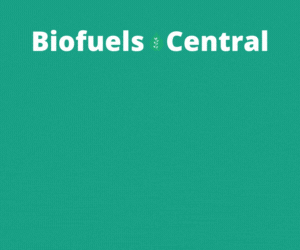Cepsa starts selling sustainable aviation fuel at major airports in Spain.
Cepsa has begun selling sustainable aviation fuel (SAF) at four of Spain’s main airports which combined handle over 133 million passengers each year, representing 55% of the country’s passenger traffic. The energy company is now selling SAF at the following major airports; Madrid, Barcelona, Palma de Mallorca and Seville, to all customers who request it, becoming the first company to offer biofuel for aviation on a permanent basis.
The energy company, currently one of the main manufacturers and suppliers of aviation fuels in the Spanish market, produces this sustainable fuel at its La Rábida Energy Park (Huelva) from organic waste, such as used cooking oils and agricultural waste. These second-generation biofuels, in addition to reducing aircraft emissions by up to 90% compared to conventional kerosene, promote the circular economy, as they are produced using waste that would otherwise end up in landfills.
Tobi Pardo, Cepsa’s Aviation Director, said:
We want to make sustainable aviation a reality as soon as possible.
“We are therefore proud to offer our SAF on an ongoing basis to customers in the aviation industry. For the first time in Spain, four of the country’s main airports have access to this sustainable fuel, which will allow airlines to move forward in their own decarbonization processes.”
Today’s news reflects Cepsa’s commitment to becoming a benchmark in the clean energy sector and leading the decarbonization of air transport. This milestone comes a few months after Cepsa supplied sustainable aviation fuel to more than 200 flights at Seville Airport in a pioneering move that marked the first supply of SAF at an airport in Southern Europe.
It was also the first time in Spain that the entire value chain had traceability certified by the ISCC EU (International Sustainability Carbon Certification) system, from the manufacture of sustainable aviation fuel to its physically supplying it.
This new step for the energy company contributes to the European Commission’s Fit for 55 package, which includes a legislative initiative called “ReFuelEU Aviation” that aims to boost the supply and demand of aviation biofuels in the European Union to 2% use by 2025, 6% by 2030 and 70% by 2050. Additionally, it supports several of the UN’s 2030 Agenda’s Sustainable Development Goals: SDG 7 (Affordable and clean energy), SDG 8 (Decent work and economic growth), SDG 12 (Responsible consumption and production), and SDG 13 (Climate action).
Under its Positive Motion strategy, Cepsa is developing an ecosystem focused on accelerating the decarbonization of industrial customers, heavy transport and the company itself through the production of green molecules, mainly renewable hydrogen and biofuels. Specifically, with the goal of driving the decarbonization of aviation, the company aims to lead the production of SAF in Spain and Portugal, with an annual production capacity of 800,000 tons annuallyby 2030, enough sustainable fuel to fly around the world 2,000 times.
To this end, Cepsa will develop the largest second-generation biofuels plant in Southern Europe, together with Bio-Oils, through an investment of up to 1 billion euros. This facility, to be commissioned in 2026 in Palos de la Frontera (Huelva), will have a flexible production capacity of 500,000 tons of SAF and renewable diesel and use the latest technology for biofuels production.
In addition, it will be designed from the outset as a digital native plant, with the latest advances in artificial intelligence, the internet of things and data analysis, to maximize efficiency and ensure the highest standards of safety and environmental protection.
Cepsa has established an ambitious roadmap to cut its emissions, placing it among the leading companies in its sector. Specifically, by 2030, it will reduce its CO2 emissions (Scope 1 and 2) by 55% compared to 2019, with the goal of achieving net-zero emissions by 2050.
Highlights:
- From July onwards, Cepsa has commenced the sale of second-generation sustainable aviation fuel (SAF) at Spain’s four main airports; Madrid, Barcelona, Palma de Mallorca and Seville, responsible for over half of Spain’s air passenger traffic
- Cepsa produces this biofuel at its La Rábida Energy Park (Huelva) from organic waste and used cooking oils
- A significant milestone in the delivery of Cepsa’s Positive Motion strategy, as it aims to become the leading producer of SAF in Spain and Portugal by 2030, promoting the decarbonization of air transport and producing 800,000 tons annually, enough to fly around the world 2,000 times
- Cepsa will build the largest second-generation biofuels plant in Southern Europe together with Bio-Oils, that will involve an investment of up to 1 billion euros. This facility, located in Palos de la Frontera (Huelva), will have a flexible production capacity of 500,000 tons of SAF and renewable diesel
- The second-generation sustainable fuels produced by Cepsa can reduce CO2 emissions by up to 90% compared to traditional fuels
Cepsa starts selling sustainable aviation fuel at Spain’s major airports, July 12, 2023









